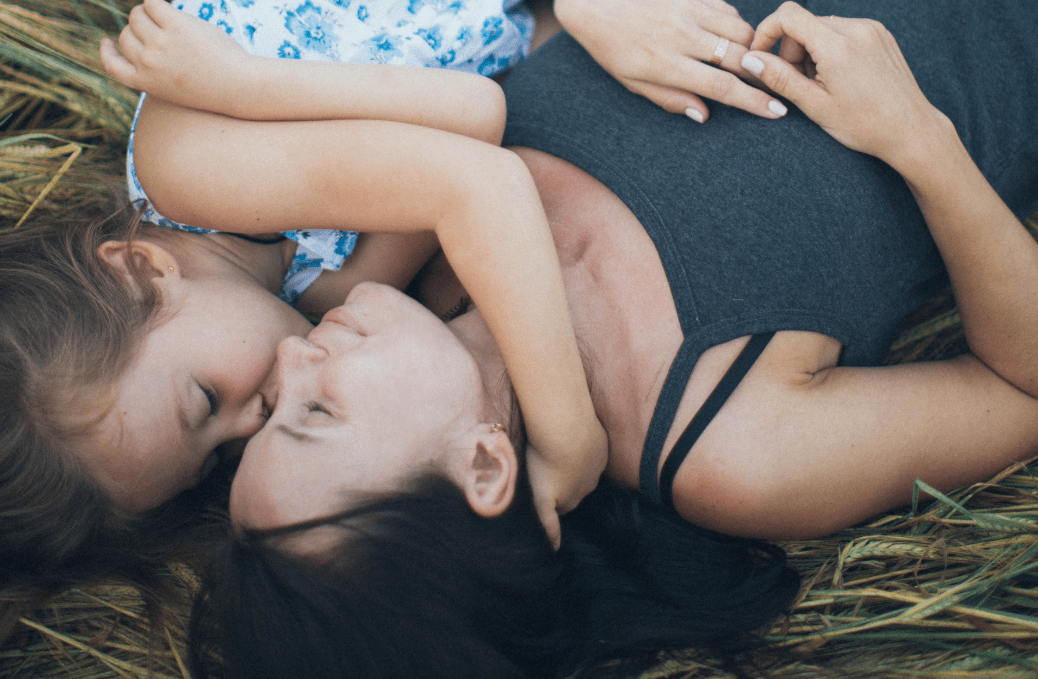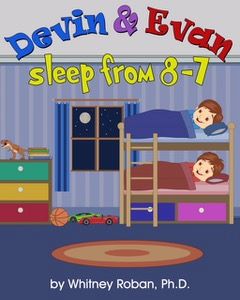If you’ve ever wanted to pull a pillow over your head when your child wakes up for the second, third, or fifth time in a night, you aren’t alone. Many of the parents sleep specialist Dr. Whitney Roban coaches can’t hit the hay without a hefty dose of guilt. But Dr. Roban, clinical psychologist and author of the Devin and Evan children’s book series, is all about making slumber a priority — and refusing to feel bad about it.
Join me as I chat with Dr. Roban about the link between sleep and behavior in kids, the three pillars of health, and what happens when children dictate the family sleep schedule (hint: fewer Zzz’s for all).
You were a psychologist early in your career, but turned your focus to healthy sleep for children and families. Was there a defining moment that led you to make the jump?
One of my sons was a horrible sleeper as a newborn. He’d start screaming, but as soon as he saw me he’d smile through his tears. There was an obvious connection between his behavior and what I was doing. A child’s sleep is a byproduct of things the parents do. Kids need the opportunity to self-soothe, which they do very quickly if we let them. It’s like taking the training wheels off a child’s bike. You have to let go and allow them to do it.

Once a child starts sleeping, do you see it reflected in other ways?
Parents often notice that their child’s development improves. I sleep-trained a child who wouldn’t eat in preschool, but he was so exhausted he couldn’t focus and eat. Once he started sleeping well, he started eating. Children who are considered difficult can see big behavioral changes. Their frustration tolerance gets better when they sleep enough. You’ll never see sleep deprivation lead to anything positive, or healthy sleep lead to anything negative.
In your experience, do childhood sleep habits usually continue into adolescence and adulthood?
They can, but they don’t have to. I’ve developed an elementary school curriculum to educate kids about sleep for this very reason. Once children understand why sleep is important, they start relating the good things in their lives to healthy sleep. Kids who’ve been taught good sleep habits have the confidence to make positive changes in their behavior.
What’s the number one mistake parents make with their children’s sleep habits?
They let children take control of the family’s sleep schedule. It creates anxiety for children when parents aren’t in control. It’s okay for kids to be included in the family’s decisions about sleep, but they shouldn’t be in control of the whole process. When you’re consistent with sleep, kids know what’s coming next. If kids know what’s going to happen, they have a sense of consistency. It’s the same with anything with parenting.

Do you think every child can be a “good sleeper?”
Every child can be a good to great sleeper as long as there isn’t a medical reason that causes them to lose sleep. Given the right sleep environment, schedule, and routine, every child can sleep well. I’ll tell parents, this is the ideal, now let’s talk about reality. Moving, family trauma, illness, vacation — I ask, what’s the best you can do? Let’s start with what you can strive for and go from there.
What do you wish everyone knew about children’s sleep?
That it’s a health issue, and should be prioritized the same way nutrition is. Parents have so much guilt about just wanting to sleep. They need to change that from “want” to need. That helps them prioritize sleep rather than feeling bad about it. The three pillars of health are nutrition, exercise, and sleep. Sleep should be part of every family’s health and wellness plan.
A huge thank you to Dr. Whitney Roban for talking to Sleepopolis! You can find out more about her and her books on Twitter, Facebook, and Amazon. You can also find her at the Sleepopolis Expert Hub.
